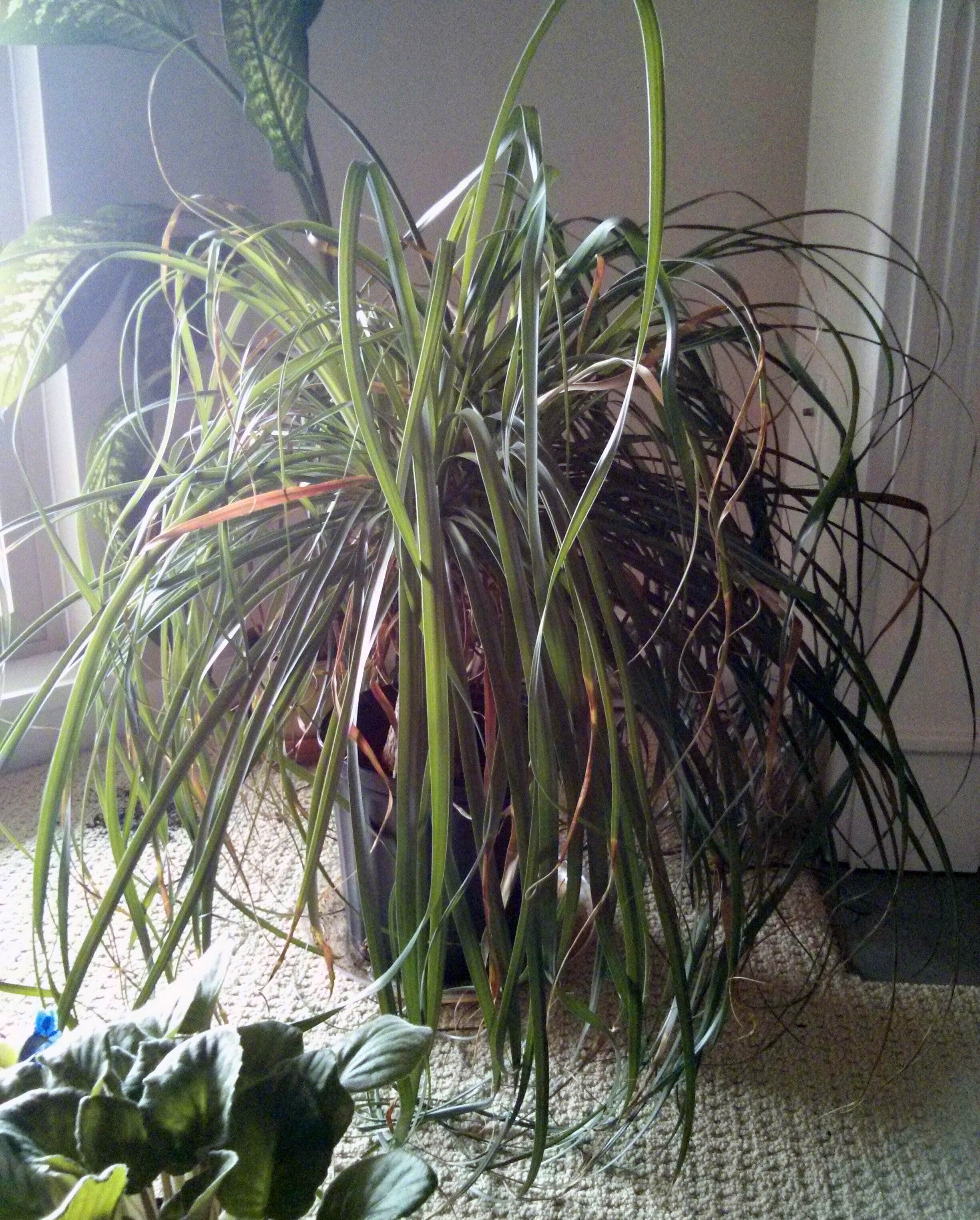I have a number of other succulent species, of varying rarity. I have had some of these plants for many years, whereas others are new additions to the family.
Beaucarnea recurvata
I bought this plant shortly after moving to Vancouver as I thought that my apartment needed some more greenery. I chose this plant in particular due to the nice caudex that it is starting to show. It has been doing well in the window to my balcony. It probably gets less light than would be ideal, but it seems to get enough to stay green and growing.
Crassula ovata
I have had this plant since the early days of grad school. I grew it from a single leaf that had fallen off of a plant from a lab down the hall from me. Due to poor soil choice it didn't grow very well during grad school, but after moving to Vancouver and repotting it into a faster draining mix, it really took off.
I have been experimenting with trying to force it to branch by placing 6-Benzylaminopurine on some old leaf nodules (the white gel in the image). So far I have not seen much branching growth, but the experiment continues.
Dorstenia gigas
These are some of my newer plants. I purchased 3 Dorstenia gigas seeds from Le Jardin Naturel, two of which germinated for me, and I have been eagerly watching them grow. This species is still quite rare in cultivation, but is slowly becoming more common as cuttings and seeds are being used to propagate the currently available parent plants. There is more information on this plant here [pdf].
Euphorbia milii
I have had my crown of thorns plant for many years. I bought the original plant from a botany student association sale at the University of Alberta during my graduate studies. My current plant is a cutting I took from that mother plant. I unfortunately had to leave the mother plant behind when I moved to Vancouver as I had no room to take it along.
Gymnocalycium mihanovichii
This species is commonly called a moon cactus, and exhibits a bright, almost neon colours. It is grafted to a tropical Hylocereus sp. cactus as it cannot survive on its own. This is because it is completely lacking in chlorophyll, which is also why it is such a shockingly bright colour. This cactus was a recent acquisition, but at somepoint I expect the graft to fail as the faster growing Hylocereus pushes the scion off. The scion can be regrafted onto the rootstock when this happens, but I may also choose to simply grow the rootstock. Many species of Hylocereus produce large edible fruit, commonly called pitaya, or dragonfruit.
Haworthia attenuata
The Zebra Haworthia is a small succulent from the Easter Cape Province of South Africa. I got it because it looked neat when I saw it in the store, and I have a hard time passing by plants without buying them!





